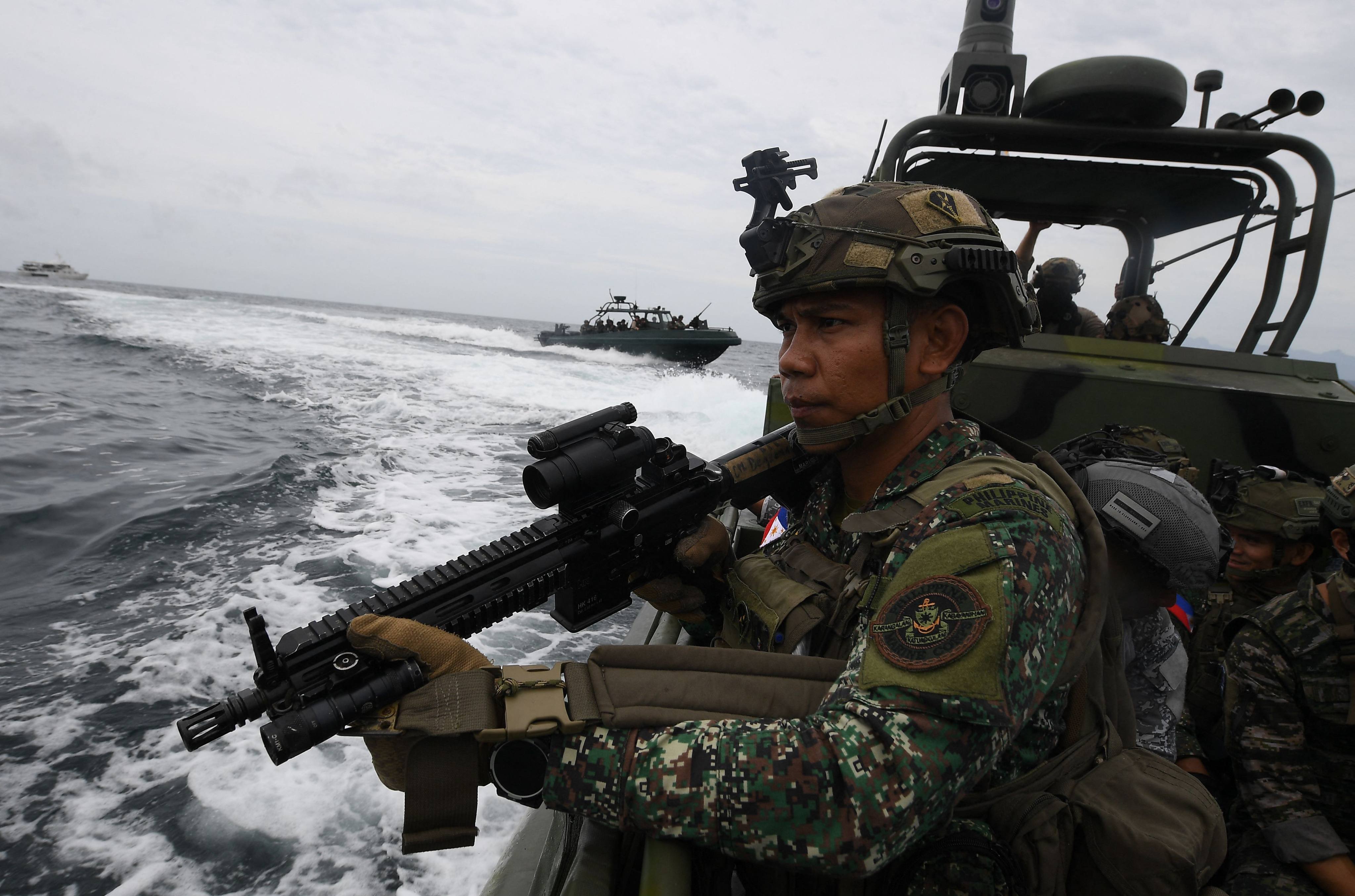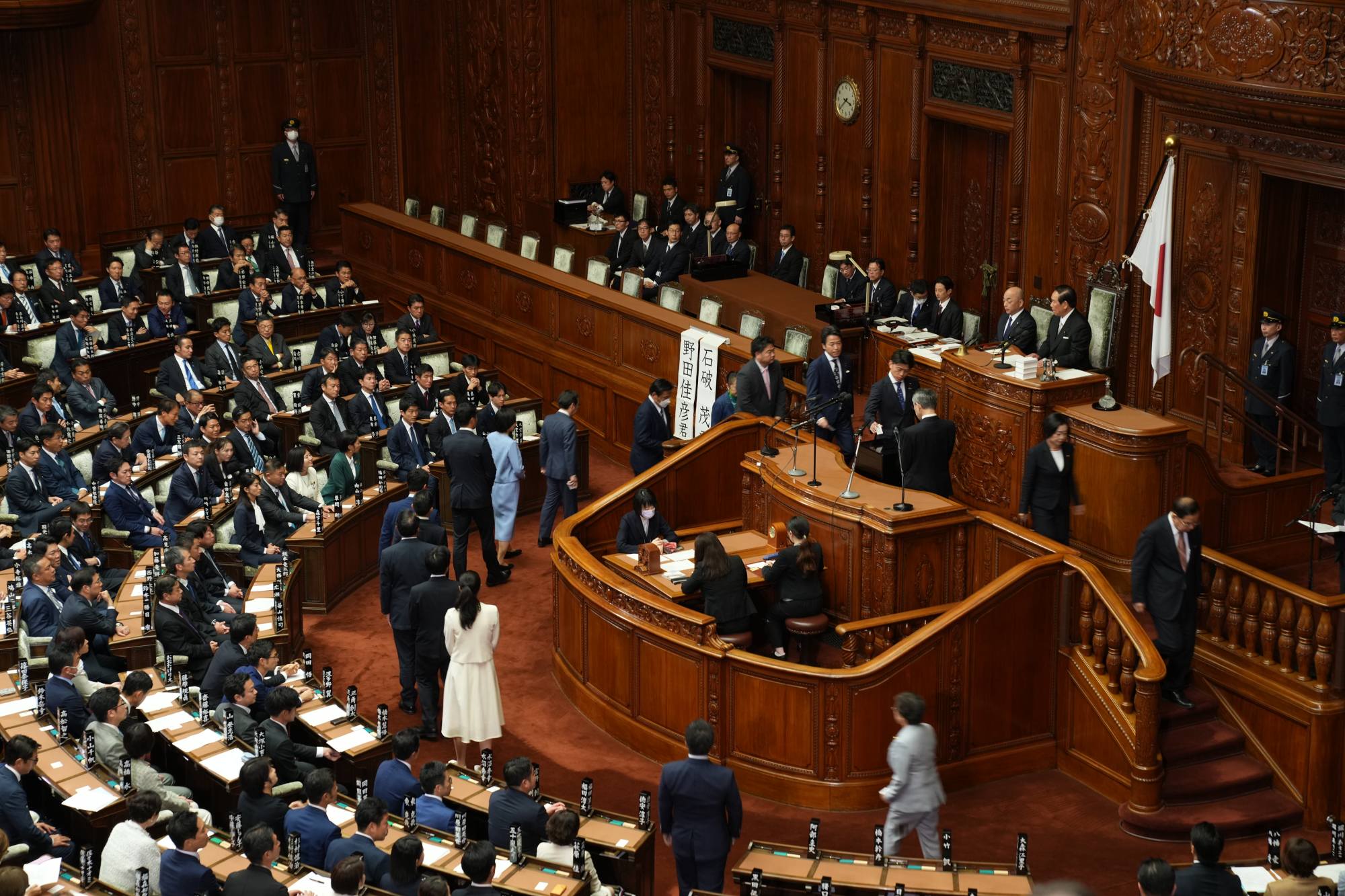Japan-Philippines military drills to become reality after Tokyo ratifies pact
Their newly ratified reciprocal access agreement paves the way for Japanese forces to train on Philippine soil for the first time since WWII

Japan has ratified its reciprocal access agreement (RAA) with the Philippines six months after Manila did, with the long-awaited move seen as a signal that Manila has proved its value as a strategic and defence partner to Tokyo.
The ratification by the Diet follows Japanese Prime Minister Shigeru Ishiba’s recent visit to the Philippines, with analysts previously observing that the trip suggested his administration was poised to finalise the agreement.
The RAA allows the deployment of Filipino and Japanese forces on each other’s soil for joint military exercises, including live-fire drills, amid mutual geopolitical tensions with China.
The Diet approved the agreement on Friday, half a year after the Philippine Senate. The pact was signed by Philippine Defence Secretary Gilberto Teodoro and Japanese Foreign Minister Yoko Kamikawa in a ceremony in Manila in July 2024, which was attended by President Ferdinand Marcos Jnr.
“We welcome today’s approval of the Reciprocal Access Agreement between the Philippines and Japan by the House of Councillors, which completes the approval process in the Japanese Diet,” Philippine Ambassador to Japan Mylene Garcia-Albano said in a statement on Friday.
The RAA is expected to improve military collaboration between the two nations by simplifying the deployment processes for joint training and disaster relief missions.

It is the first agreement of its kind that Japan has signed in Asia following similar pacts with Australia and Britain, and will see Japanese forces back on Philippine soil for the first time since World War II, when they occupied the Southeast Asian country.
Japan and the Philippines are two of the United States’ closest Asian allies, and have both taken stances against China’s increasingly assertive behaviour in the East China Sea and the South China Sea.
The agreement is set to strengthen the countries’ strategic partnership amid rising tensions in the Indo-Pacific region.
“The RAA is a testament to the trust and enduring friendship between the Philippines and Japan. It will enhance our ability to work closely together in promoting a rules-based order governed by international law,” Garcia-Albano said.
‘Vocal nations’
Chester Cabalza, founder and president of the think tank International Development and Security Cooperation, told This Week in Asia: “After a thorough deliberation, [Japan] knew that the Philippines is a reliable partner in maintaining a maritime rules-based order and presenting a clearer free and open Indo-Pacific region.”
He added that both Manila and Tokyo actively speak out against China’s dominance in the East Sea and West Philippine Sea; the latter is the term used by the Philippines for its exclusive economic zone in the South China Sea.
Julio Amador, interim president of the Foundation for the National Interest and founder and trustee of the non-profit policy advisory firm FACTS Asia, said the Diet’s approval indicated that “Japan recognises the value of the Philippines as a strategic and defence partner”, as well as the “urgency of the unfolding strategic picture that Japan sees”.
“Having an RAA with mutually agreed privileges and responsibilities is important for both countries for the protection of their citizens and troops,” Amador said.
Trust and reliability are strong that they can now share classified informationChester Cabalza, security analyst
Cabalza added that the trilateral defence cooperation between Japan, the United States and the Philippines had tested and validated that minilateral defence cooperation and collective deterrence were possible.
Tokyo and Manila were exploring additional agreements, including an information security pact, according to Cabalza, who said that these new deals were “signs of maturity in their bilateral relations”.
“Trust and reliability are strong that they can now share classified information,” he added.
Before the pact’s ratification, Japan had already shown its support for the Philippines by helping with Manila’s coastguard modernisation drive and human resource training.
In December, Tokyo also signed the Official Security Assistance agreement, pledging 1.6 billion yen (US$11 million) that covers coastal radar systems, automatic rigid hull inflatable boats and other equipment.
Cabalza said the RAA could also be pivotal for solid economic security, as Manila opens up for Japan-backed infrastructure ventures, while Tokyo welcomes more Filipino nurses to address its ageing population.
Meanwhile, observers warned Manila and Tokyo to “brace themselves”, as China was likely to respond to the ratified pact.
“Expectedly, China will strengthen its relations with North Korea in East Asia to counter Japan and Beijing will use coercive diplomacy against the Philippines as Manila prepares for its chairmanship of Asean next year,” Cabalza said, adding that “China will not relinquish its dominance in the region as it sees RAA as a threat to its expansionist ambition in the region.”
Amador said Beijing “will always react”, suggesting Manila and Tokyo should consider its next move.
However, the Philippines must first contemplate its own perspectives on what constitutes its security. “Our insecurity as a state is primarily fed by China’s aggressive actions, so it is up to China whether it wants more countries to band even more closely together.”